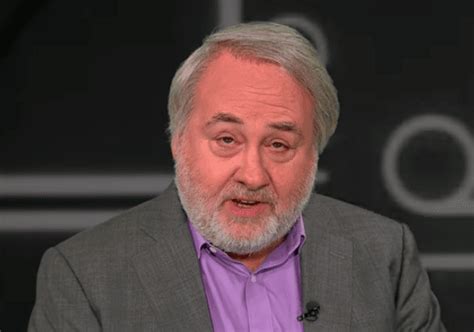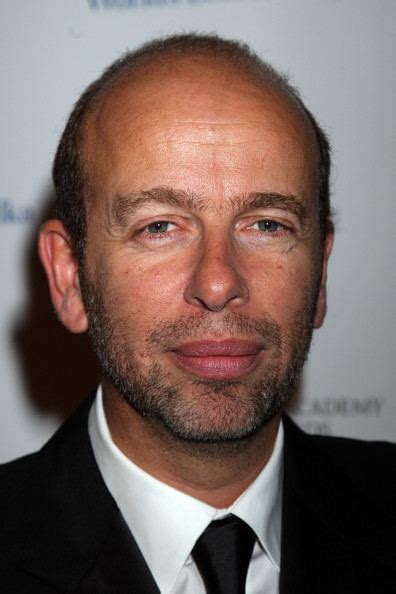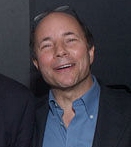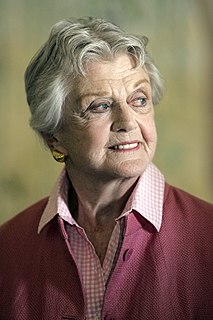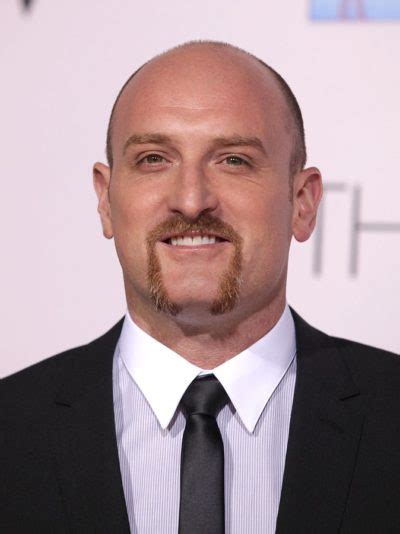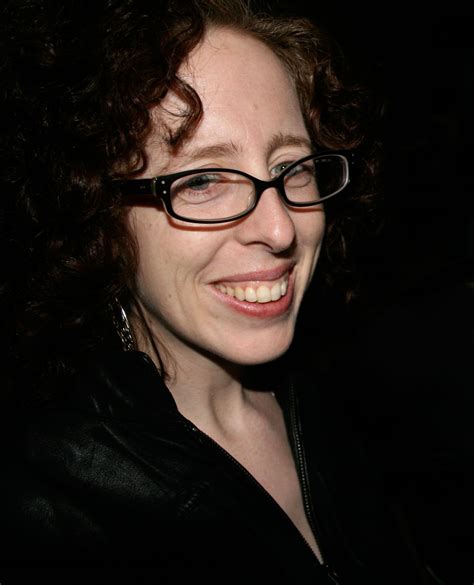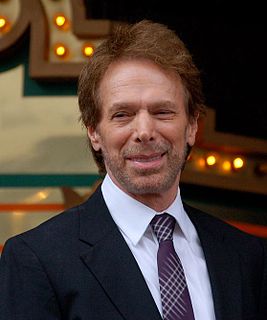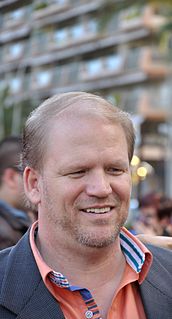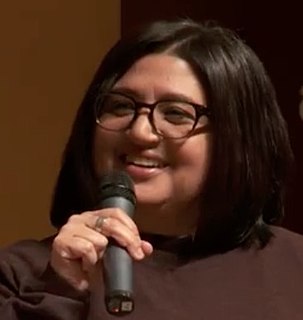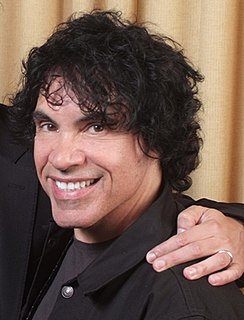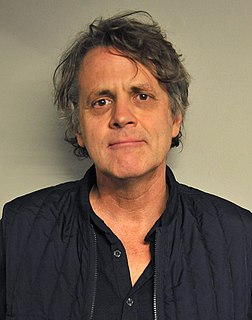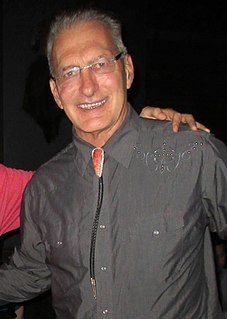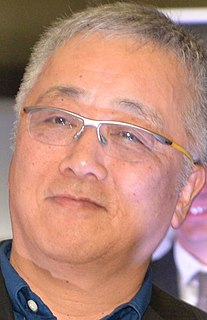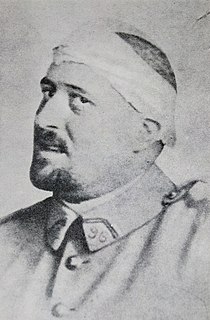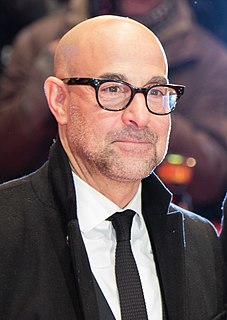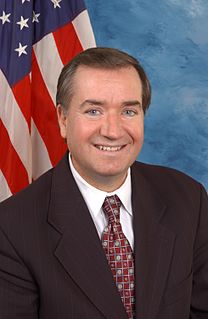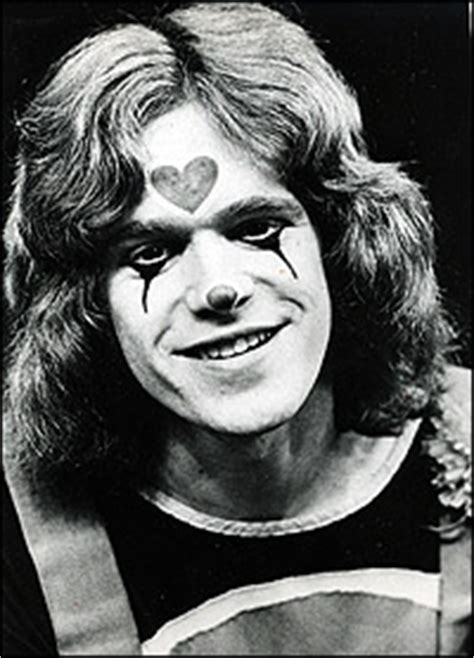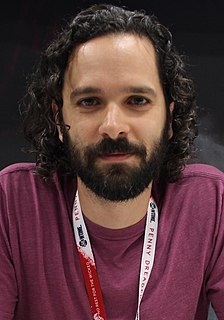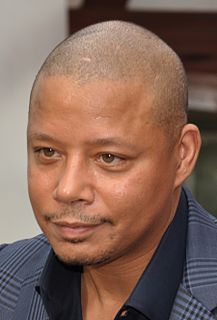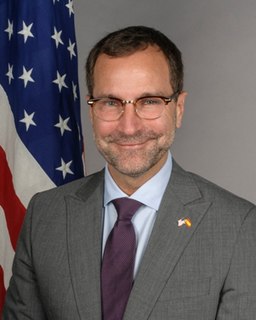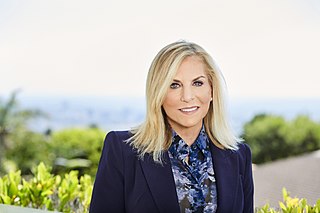Top 746 Studios Quotes & Sayings - Page 12
Explore popular Studios quotes.
Last updated on December 22, 2024.
We [film supervisors] always try to encourage discussion in the room because a lot of times newer animators who are just out of school or people come from other studios, they're gonna have different points of view and we want to make sure we're vetting all the ideas to get the best ones. A lot of people are shy about speaking up if this is their first time at Pixar or if they don't have a lot of experience, so we try to encourage that.
European films had art. And it was easy to make a European film. They didn't come from the studio system, they weren't shot in sound studios, and that's a good thing, because in the studio system those movies would never have had a chance. And since we were coming from Europe, it was natural for us to use that simple style. Small budgets, less equipment, that was just how it was.
I have a lot of films that I haven't gotten made, and that continues to trouble me. But someday, some way or another, I think I will. It's all about timing. There's a moment when you're hot and studios will make your next film, and then there's a moment when you're really cold, and they couldn't care less what you want to do next. That's when you have to recede and make lower-budgeted films.
This business is hard. People and producers and studios and finance guys get caught up in saying, "Women don't sell movies," or "This person doesn't sell foreign," or "You have to attach guys first," or "People don't want to see women do this." I've heard those things so many times that I've actually heard myself say them, a number of times.
I remember Elvis as a young man hanging around the Sun Studios. Even then, I knew this kid had a tremendous talent. He was a dynamic young boy. His phraseology, his way of looking at a song, was as unique as Sinatra's. I was a tremendous fan, and had Elvis lived, there would have been no end to his inventiveness.
You won't be reading reviews of the dystopian sci-fi flick Aeon Flux in the papers today because it wasn't screened for the press-and, given that it cost the GDP of a small country and that Charlize Theron and the director, Karyn Kusama, are critics' darlings, this could mean but one thing: A stinker. A weapon of mass destruction. A planet-killer. Folks, I'll never understand studios. Aeon Flux is not that terrible.
Then something fails and they're all out again, but DVD revenue is disappearing, you know, it's not disappearing but it's going off a cliff and what that's done is it's polarized the industry in a way that I've never seen before where studios are making less, they're bifurcating their choices where they're either going very, very big or they're just picking up a few rights on an acquisition basis or making really small things.
New media has made it possible for filmmakers like me to get their message out. No big Hollywood studios are needed anymore to make and release a film. More and more people are watching movies and television online than going to the movie theater because of costs. This freedom gives me the opportunity to create the film I want to be seen and heard.
As a kid, I just was a contract player at MGM Studios. They put me into goodness knows how many different roles.Some of them were wonderful and some of them were very just distasteful and awful because I was playing out of my age range and I was thoroughly uncomfortable, let's put it that way. So it took me many years to find my acting feet.
One of the good things is the relationship between director and editor used to be more contentious. Studios used to leave directors alone more during the post production process and now they're clamoring to get in. So, the director and the editor end up teaming up sort of against the studio to fight what they're doing and you lose the creative tension that you used to have between an editor and a director.
Filmmakers need to realize that their job isn't done when they lock picture. We must see our films through. Studios no longer do this for a large percentage of films. The odds that your film will get a major campaign are dim these days. So you must find and nurture your own audience and make sure your film has a life.
To aspiring writers, I would tell them that we live in a wonderful time where you're able to make your work visible, easily. If you think about it, even ten years ago or twenty years ago, there was a middle man, there was a publisher, there were studios, there was this world of rejection letters. Now, we're in a place where we have the technology and the ability to go shoot our own movies or to put stuff on YouTube or a blog, if you're a writer, or self-publish.
Two main groups like to drop the readymade bomb—galleries and art historians. Galleries love to drop the Duchamp brand because dealers can try to convince clients of an artist’s worth just by mentioning the mouthwatering response readymade. Most Art Historians aren’t interested in what artists are making in Bushwick studios, most of whom rarely wake up with Duchamp on the brain.
Animation, for me, is a wonderful art form. I never understood why the studios wanted to stop making animation. Maybe they felt that the audiences around the world only wanted to watch computer animation. I didn't understand that, because I don't think ever in the history of cinema did the medium of a film make that film entertaining or not. What I've always felt is, what audiences like to watch are really good movies.
I like working. I wish I could say I made a deliberate choice to comedy, but it's just what came my way. It's what the studios wanted to make. Some of my friends were doing it, like Will Ferrell and Adam McKay, and they offered me 'Talladega Nights.' It's just nice work if you can get it. It's a joyful day at work, making your friends laugh.
You get notes from two studios and a network instead of a studio and a network. Although we early on forced them all to do their notes together. I make them all talk to each other first. Because we went through the pains of getting notes from ABC and at the time it was Touchstone, that were opposite - and then CBS notes that were opposite again. So it was, you guys are going to have to work it out as to what is the most important note.
Miles Davis had been in retirement for five or six years and he was coming out of retirement and he was looking for young guys. Somebody gave him my name and he called me and said, "Can you show up at Columbia Studios in two hours?" I'm like, "Whoa, is this the real Miles Davis?" He's like, "Yeah." So I showed up and yeah, it was intimidating, but music is so important to me that the intimidation was all before the notes started.
I think distribution has become a lot harder. With the whole explosion of digital video, there's just a lot more people making films. Distributors have a lot more choice. I do think there's an audience out there for small films. It's obvious to me what the studios do: they've co-opted independent film. They all have their independent arm. They can afford to crush the competition.
Our Pavlovian response to movies has gotten to its lowest point ever. You look at a lot of movies that are successful and a lot of movies that studios hold up as examples and you go, 'My God, that isn't even a story. It isn't even two acts. It's eight set pieces drawn out with slow motion.' The difficulty for me was that you had to hope that people were interested in this kind of a story.
To evoke the classic period of Italian cinema in a little film seemed like a great, fun thing to do. I had relations to that period. I had known Fellini and I had known Antonioni. I had made a movie with Antonioni and I had visited Fellini in his studios. So, it seemed like something worthwhile doing. You bring yourself to that mythical cinema.
The more visibility, the more opportunities for Asian-American actors to play great roles. It goes to the studios opening up roles they might not have considered Asian actors for. The talent is there. I don't think there needs to be one superstar, but having more roles open up, that's the way changes happen.
I didn't come to Nashville to put on a cowboy hat and pretend to be a country singer. My attraction to Nashville as Music City is the variety and flexibility: the fact that there's so many musicians at your disposal, so many amazing studios and talented people that you can draw from. ... I try to be myself, but at the same time I'm learning a lot, and I'm pulling from not only from the well of inspiration that I'm getting from Nashville, but I'm pulling from my roots.
I would love nothing more than me and my family getting green cards, going to L.A. for a year, sitting down with the big Hollywood studios and coming up with the most advanced and awesome Internet distribution platform for movies. It would make Hollywood more money than cinemas, DVDs, and everything else combined.
You look at Japan and Hayao Miyazaki's films are the biggest films ever made in Japan; domestically there and they play to critical acclaim around the world. He won't put more then 5 or 10 percent computer imagery in his movies. It's disappointing to me. It's a silly choice that some studios made to move out of animation. It's part of the unfortuneate preconception that I think the public has going into see animation.
Gareth [Edwards] was very much about including everyone in what we were making, so he would cut together different scenes to show us what we were making. And the crew, cast, everyone would go into a theater there at Pinewood Studios and watch 10 minutes of what we were making. It was always so exciting. It looked amazing, and the music was huge.
I always remind people why The Oscars got started in 1928: It was an effort by the studios to suppress the unions. They started the Academy because all the screenwriters and directors and actors were unionizing, and they thought, "We'll have something that resembles a union, but that's completely controlled by the moneyed interests in Hollywood." That's what it's been all these years. It's something that reinforces Hollywood's image of itself. The Best Picture one year was Gandhi. Nobody watched Gandhi, but that's the kind of picture that always wins.
After Pixar's 2006 merger with the Walt Disney Company, its CEO, Bob Iger, asked me, chief creative officer John Lasseter, and other Pixar senior managers to help him revive Disney Animation Studios. The success of our efforts prompted me to share my thinking on how to build a sustainable creative organization.
The industry in Japan moving toward CGI is not as severe and extreme as in the U.S. The animation industry in the U.S. is firing 2D animators and closing those studios, but I think it's possibly because the national traits of the U.S. prefer super-realism. Since Japan is a country that prefers plane vision, I don't think we will leave 2D and substitute hand-drawing with CGI entirely.
The new painters do not propose, any more than did their predecessors, to be geometers. But it may be said that geometry is to the plastic arts what grammar is to the art of the writer. Today, scholars no longer limit themselves to the three dimensions of Euclid. The painters have been lead quite naturally, one might say by intuition, to preoccupy themselves with the new possibilities of spatial measurement which, in the language of the modern studios, are designated by the term fourth dimension.
In order to be artists we need to be in our studios, in our private rooms... in our private personal space... that sacred protected space, so we can make our work. That's the only work that's worth making, right? That's the place where we can be free enough and vulnerable enough to share what we have to share.
There were the days when women were under contract, and they were thought of as a commodity, so they hired the best writers and a lot of them were women at the time. This was in the thirties and forties, to make product for the people who were under contract, who were their assets to the studios. But that doesn't exist anymore - and as a result, the people who are in the industry write products that interest them.
[Hollywood] studios are handing out money to make independent films now, but they all want the same thing. They want the style and the deadpan delivery of RESERVOIR DOGS or FARGO and so they imitate those movies. They want PULP FICTION, but they get it all wrong! They get the detachment, but that's it. And then it's all about style, and in the end what do you learn about the characters? Nothing. You learn you wasted two hours.
The first cut I do is usually between five and 10 minutes shorter then the cut that we release. Anything I think isn't working or might not work, I don't even put it in the director's cut. And usually it's the studio suggesting I put stuff back in, as opposed to studios saying, "You got to lose 40 minutes," they are always saying, "You've got to gain five minutes."
Negro writers, just by being black, have been on the blacklist all our lives. Do you know that there are libraries in our country that will not stock a book by a Negro writer, not even as a gift? There are towns where Negro newspapers and magazines cannot be sold except surreptitiously. There are American magazines that have never published anything by Negroes. There are film studios that have never hired a Negro writer. Censorship for us begins at the color line.
Studios might cast an actor because he is too tall next to the leading lady, who is too short, or they might not cast your guy because he's blond, and they wanted a brunette. There's all kinds of reasons why they want one person over another. I don't worry about it, but it can hurt sometimes if you really wanted something, if you really went after something.
Once you capitulate to one dictator, does that mean that the next dictator or the next terrorist that says you're not going to make a comedy about - or a film at all about ISIS. All of us in public life have a responsibility right now to speak out and to say, 'No, Sony, you did the wrong thing' and to say to Hollywood, come behind - the other studios should come behind Sony and offer their support.
The challenge in writing the songs for The Aristocats truly fell on the animators & director of the film. Robert & I wrote the initial songs for the film, just prior to leaving full-time employment at the Walt Disney Studios. Therefore, some of the songs we wrote for The Aristocats were never used. I believe, therefore, the challenge fell upon the makers of the film to select what songs made the final cut.
Studios are so used to digital now and there is a mythology that it's cheaper. But it's really not cheaper. For instance, digital is great for night exteriors, everybody knows it's a video tap, so it's very responsive to light. So you can go out at night, shoot with digital and it's gorgeous, beautiful to look at . Conversely, you go out and shoot day exterior, and it slams you, just like you know from your own video recording.
I've always loved animation it's the reason why I do what I do for a living - the films of Walt Disney. This art form is so spectacular and beautiful. And I never quite understood the feeling amongst animation studios that audiences today only wanted to see computer animation. It's never about the medium that a film is made in, it's about the story. It's about how good the movie is.
When you're battling against the minds of the studios and the money that can go into promoting larger budget films, it's very hard for a very small-budget Australian film to get a look in. You can get critically acclaimed and go to various film festivals around the world, but that doesn't necessarily mean the majority of people are going to hear about it.
Audiences have grown to equate being startled with being scared, and will complain that a movie 'isn't scary enough' if it doesn't have enough jump scares... so that means that a lot of studios will insist on shoving jump scares into a movie, regardless of character or story structure, thinking it 'makes it scarier.'
If I have a male protagonist, it's a studio movie, and if it's a female protagonist, it's an indie movie. That's just how it is. It's not about the studios. It's about America and who goes to see movies. Women are interested in men and women, and men aren't interested in the woman's story. They just aren't.
I'd like to drill in a little more detail into one aspect of cutting which is particularly close to me and that's dialogue editing. It is a vital part of editing especially in animated film, but in the end it is usually completely transparent to the audience. The vocal performances are reported for over several years and the actors are very rarely in recording studios together. That's why the editor has got to all these different performances and edit them together to create the illusion of spontaneity and real action.
What outrages me as a representative of journalists is that there's not more outrage about the number, and the brutality, and the cavalier nature of the U.S. military toward the killing of journalists in Iraq....They target and kill journalists ... uh, from other countries, particularly Arab countries like Al -, like Arab news services like Al-Jazeera, for example. They actually target them and blow up their studios with impunity.
When you're in these movie deals and the studios are talking, they're putting business deals and packages together, but they're making calls based on previous relationships. They go, "Oh, let's call this actor because we did this with him, and he might like him. Does he like him? Let's piece them together." There's a brain behind that puzzle, and I want to be the brain.
I want studios that make story-based games to start taking their stories more seriously. And that doesn't mean hiring a big shot writer from Hollywood; it means that story becomes integral to making your game. I don't see how you can achieve that without having an in-house writer that sits next to the designer, helping them make their levels, talking with the engineers about where we can tell the story more dynamically, pushing at technology.
If we [black people] do not show up and support the march towards cinematic equality, the march towards being on a level at - we don't even have to be higher than whites, but to be viewed in the same common thread of this is a professional, these are stories that people are interested in, instead of being fed the same old BS dogma that's been fed and the studios have used.
The Canary Islands offer special incentives to companies looking at potential filming locations, so it was only logical for me to help the local government make connections with major U.S. film studios like Universal, Fox, Sony, Disney, Paramount, Time Warner, 21st Century Fox, CBS, Viacom, Comcast, HBO, Netflix, Warner Brothers etc.
I was very combative as a creative person at that time [while The Ben Stiller Show]. I didn't understand how to play politics with the studios. I didn't know how to creatively collaborate with the people who were paying the bills, and that came up all the time on every project I was doing, and it took me a really long time to figure out how to collaborate in a healthy way.
What's interesting in scripted TV is different than what's interesting in reality TV. Each of their departments have their development process where they package things and put together the writers and put together the producers and the different elements and develop the projects. By the time you get to a network or to a studio, you're able to say this is the project, here's who the producer is, sometimes even here's who the star is, here's who the writer is. It's a well-developed project by the time it gets to the studios.
I realized that I really, almost by accident, had fallen into a labyrinthine, very powerful paradigm for dealing with these things through genre films. And once I realized that and realized the power of it, and the fact that because horror films aren't, in general, studio products - studios back them sometimes, but they don't try to meddle too much, because they kind of don't want to sully their skirts - you have a lot of freedom.
I may not get the opportunity to make movies for my whole life, but I'm going to make movies for the rest of my life. Maybe studios won't pay for it, but I'm going to do it because I love it. So, I just have to be proud of what I make, and what I'm trying to say in what I make. If people don't like it or people don't see it, that's beyond what I can control. I'm a storyteller, and people are going to listen or not and like it or not. That's only solidified over time.





